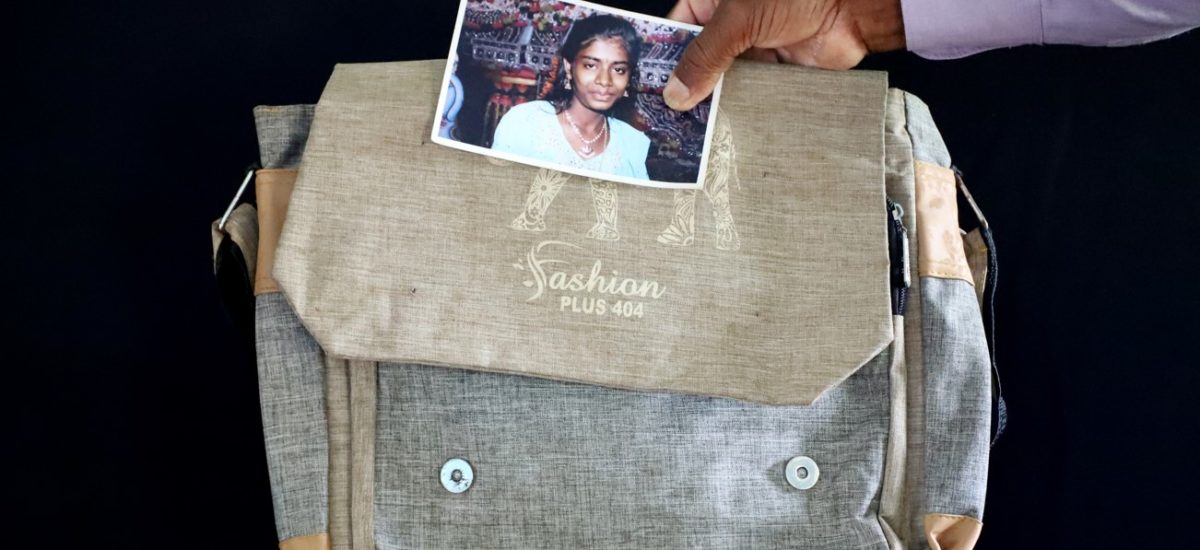“Son, this bag belonged to my daughter. I use her bag to try and find her. This bag contains all the documents. It’s now very old and has started to tear in many places. But I do not have the heart to change it. How do I throw away her bag, son?”
“I have many bags, son. But for how long can I use this one bag? How many places have we been to? How many protests have we organized amid threats? The bag usually gets damaged or gets torn off me during those times. But I have been using this bag for the past four months.”
“I have not attended any protests in a long time. I am fed up. I have kept all documents relating to my son in a bag. I had bags that were in good condition during those times. But now I don’t go anywhere.”
“I have been using this particular bag for the past 13 years. I have kept a photograph of my son and documents related to him safely in this bag.”
Relatives of those who were forcibly disappeared have been carrying out continuous protests in the North and East in search of their loved ones for more than 2,000 days. Their struggle began from the day their children, husbands, wives, brothers and sisters disappeared, many after they had crossed over to the military controlled area at the end of the war in May 2009. Since then, the families have been fighting with unwavering courage and determination despite threats, surveillance and attacks.
In the arduous journey families of the disappeared have undertaken, the bags that contain the memories of their loved ones have been an integral part of the struggle. Some of these bags are still part of their journey while some of them have been removed. Others have lost their companions and been abandoned and some still remain within homes, a symbol of a memory gone, of lost hope.
These are some of their stories.



